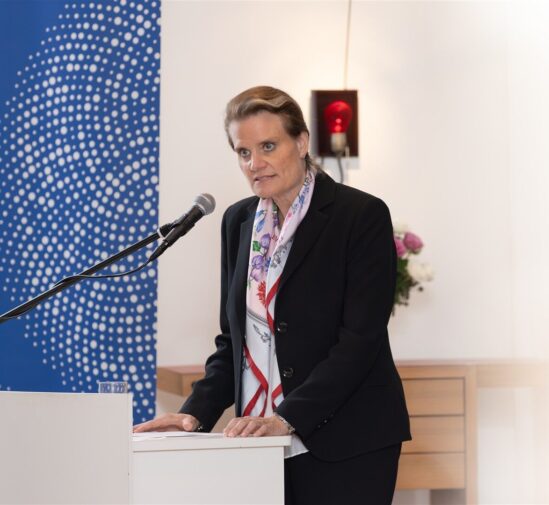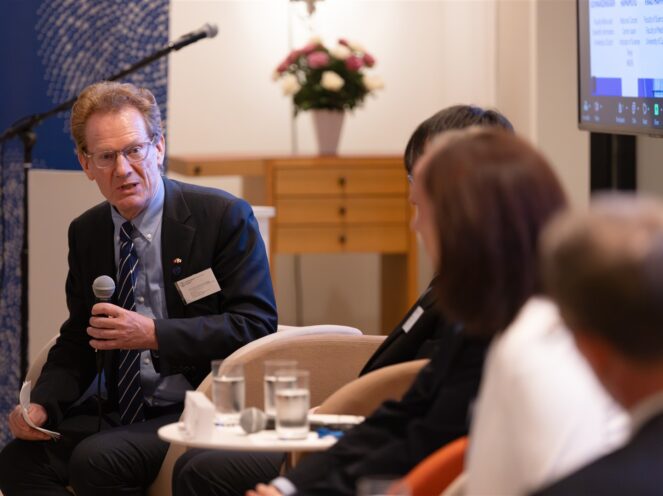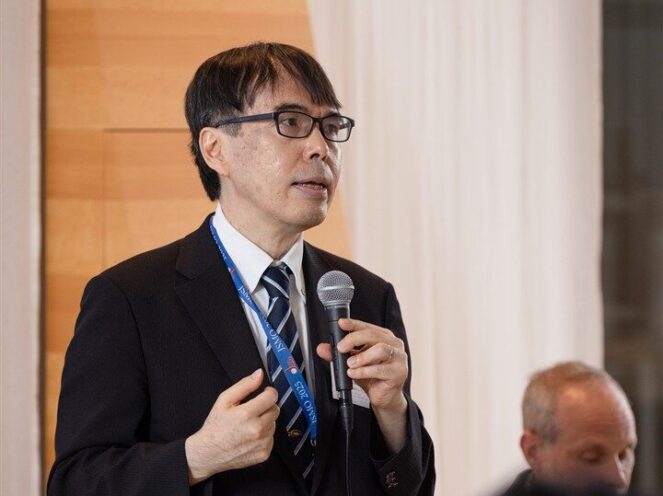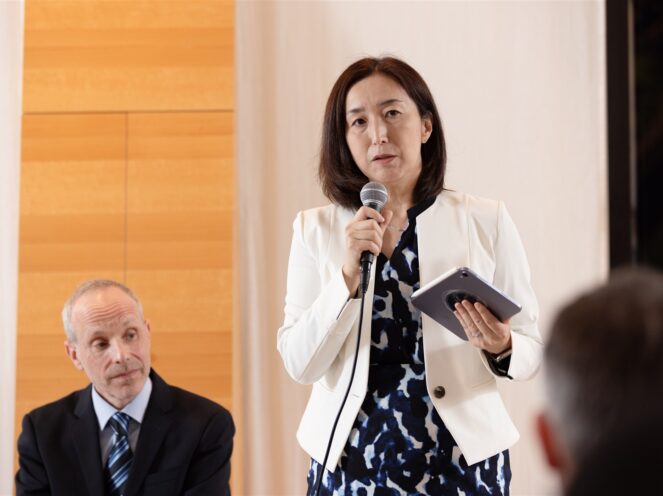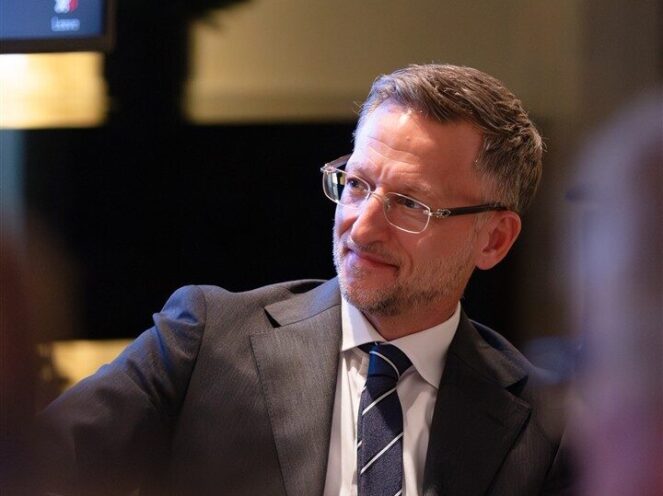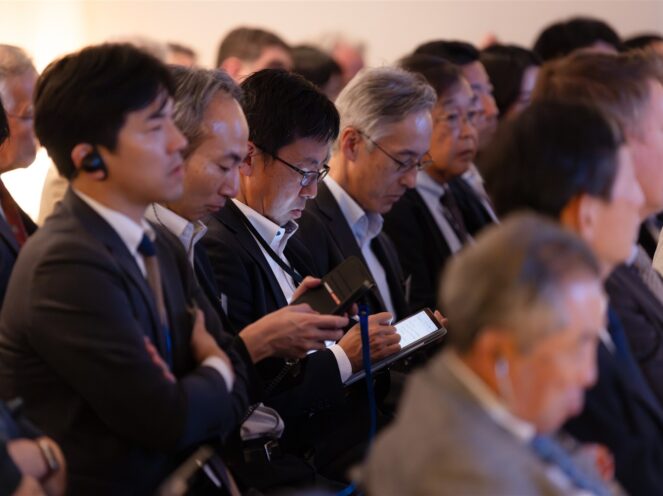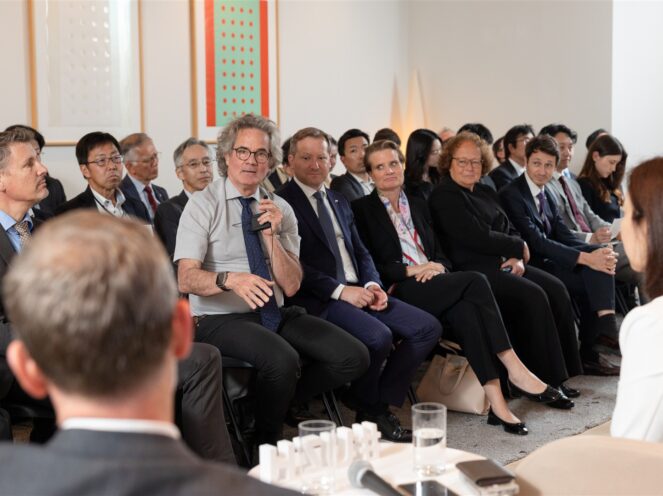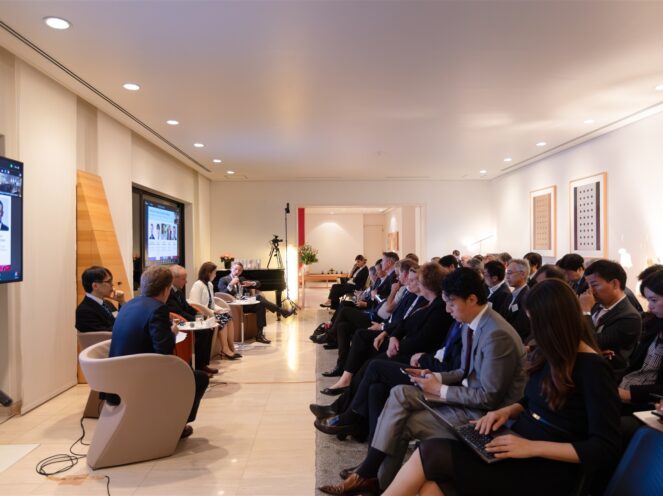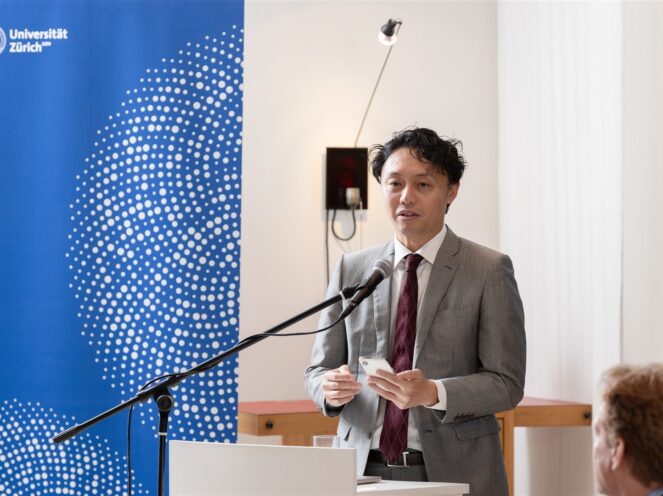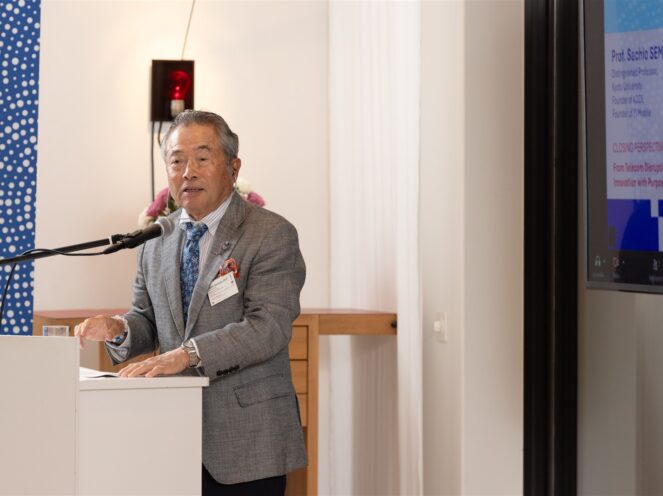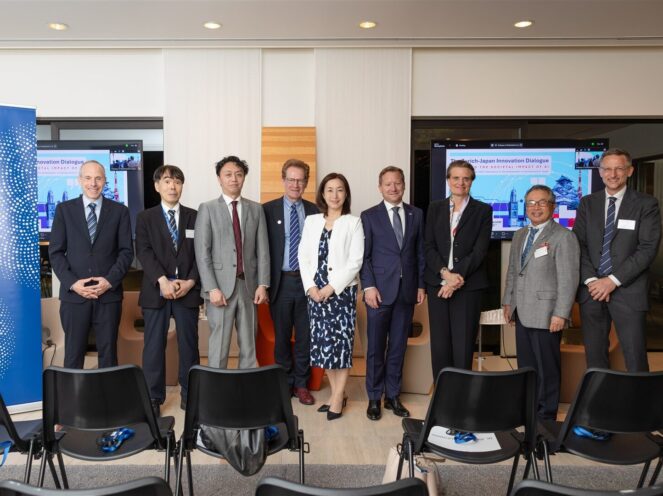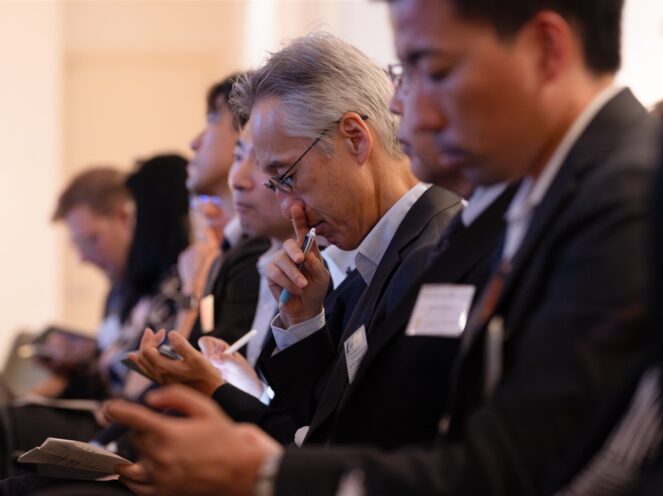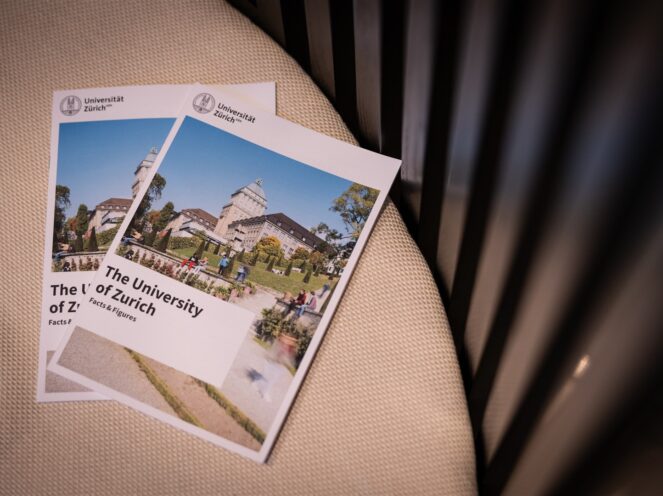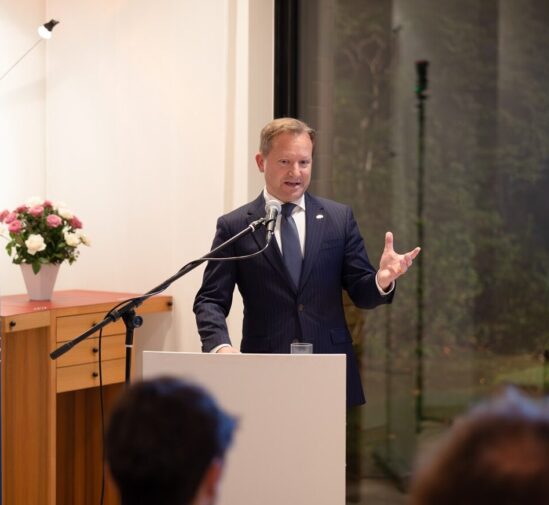
H.E. Mr. Roger Dubach
Ambassador of Switzerland to Japan
The event welcomed a diverse audience of government officials, diplomats, industry leaders, academics, and the Swiss State Secretary for Education, Research and Innovation (SERI) Martina Hirayama accompanied by a scientific delegation in Japan for an official mission.
In his welcome address, Ambassador Roger Dubach hosting the event emphasized the importance of international collaboration in navigating the societal implications of AI. Drawing on his background in international law and digital governance, he highlighted Switzerland’s commitment to ethical frameworks and praised the shared values between Switzerland and Japan, particularly the integration of modern innovation with traditional principles.
Following up with an opening remark, State Secretary Martina Hirayama underscored Switzerland’s global leadership in AI research and development. She introduced Apertus, a new open-source large language model developed by ETH Zurich, EPFL, CSCS, and other Swiss institutions. Designed to foster transparency and accountability, Apertus exemplifies Switzerland’s approach to responsible innovation. She encouraged active dialogue with Japan to ensure AI serves the common good.
Ambassador of Switzerland to Japan
State Secretary for Education, Research and Innovation (SERI)
The panel discussion, moderated by Professor Christian Schwarzenegger of UZH, featured Professor Ryuji Hamamoto from the National Cancer Center Japan and RIKEN, Professor Michael Krauthammer from UZH, Ms. Akiko Murakami of the Japan AI Safety Institute and Sompo Holdings, and Professor Florent Thouvenin from UZH. The conversation addressed pressing questions around AI governance, ethical trade-offs, education, public engagement, and international collaboration. Speakers explored how AI can be both a tool for empowerment and a source of risk, emphasizing the need for balanced policies that promote innovation while safeguarding societal values.
Professor Krauthammer described AI as a “companion” in medicine, supporting, not replacing, healthcare professionals. He outlined its potential to improve quality, reduce costs, and democratize access to medical knowledge. Professor Thouvenin compared Swiss and Japanese regulatory approaches, noting Japan’s proactive sector-specific regulations versus Switzerland’s adaptive legal framework. He stressed the importance of preventing harm while fostering innovation and introduced the AI Policy Observatory, a resource developed jointly with the University of Kyoto for comparative legal insights. Professor Schwarzenegger highlighted the cultural and strategic alignment between Switzerland and Japan, calling the partnership a natural fit for shaping the future of AI based on trust, reliability, and security.
University of Zurich
National Cancer Center Japan and RIKEN
University of Zurich
Japan AI Safety Institute and Sompo Holdings
University of Zurich
Reflective remarks on the panel discussion were delivered by Professor Yutaka Matsuo of the University of Tokyo, reinforcing the importance of interdisciplinary dialogue. The event concluded with a keynote by Distinguished Professor Sachio Semmoto of Kyoto University, Founder of KDDI and Y! Mobile who drew parallels between past telecom disruptions and today’s AI transformation, urging innovation with purpose in a hyperconnected world.
The AI dialogue event series continued at the Expo 2025 in Osaka, Kansai. The event at the Swiss Pavilion, supported by Swissnex in Japan, featured Kenichiro Mogi, Sony Computer Science Laboratories and Project Professor at the Graduate School of Arts and Sciences, University of Tokyo; Sofia Sahab, Program-Specific Assistant Professor at the Graduate School of Informatics in the Department of Social Informatics at Kyoto University; and Yasuki Takami, Advisor in the Promotion Consortium for AI Co-Innovation Lab Kobe, Microsoft.
※ Get more insights into the dialogue in Osaka here.
Events like the Zurich–Japan Innovation Dialogue are vital in fostering global cooperation on emerging technologies. By bringing together diverse voices from academia, industry, and government, such platforms help build mutual understanding, promote responsible innovation, and ensure that AI development remains aligned with societal values. The dialogue between Switzerland and Japan exemplifies how international partnerships can lead to thoughtful, inclusive approaches to shaping the future of AI.
The University of Tokyo
Kyoto University, Founder of KDDI and Y! Mobile

